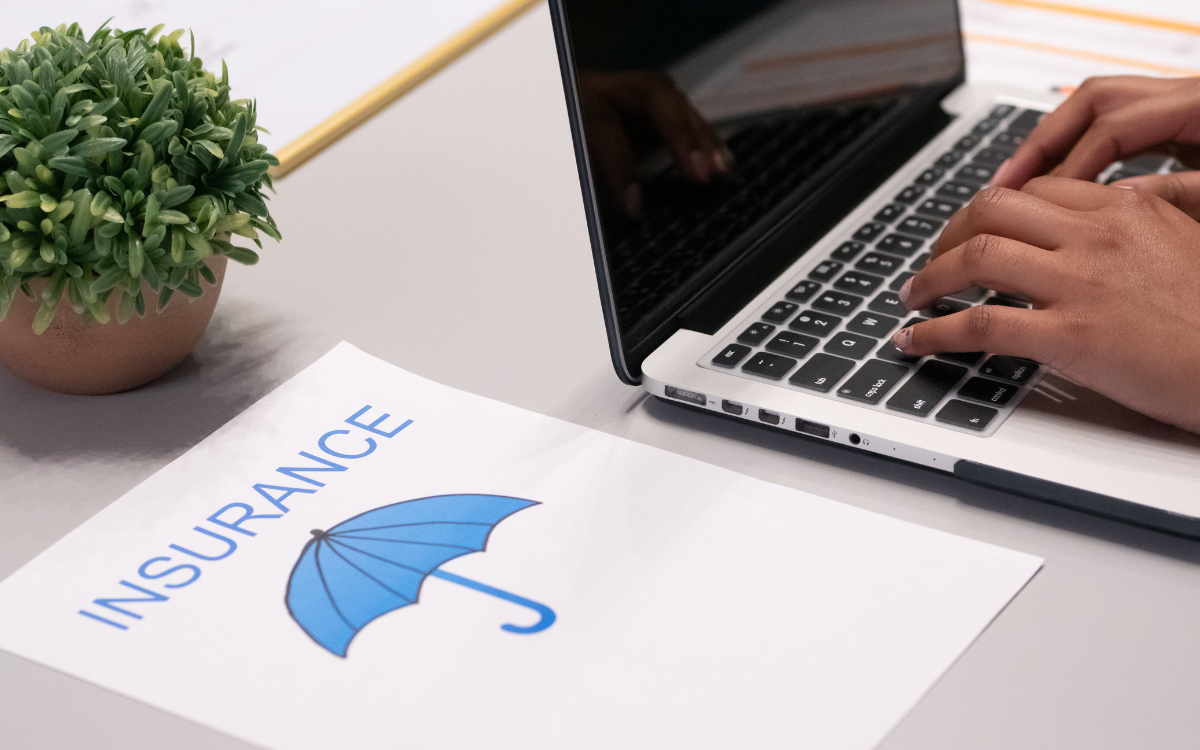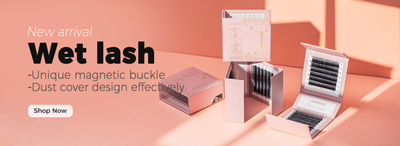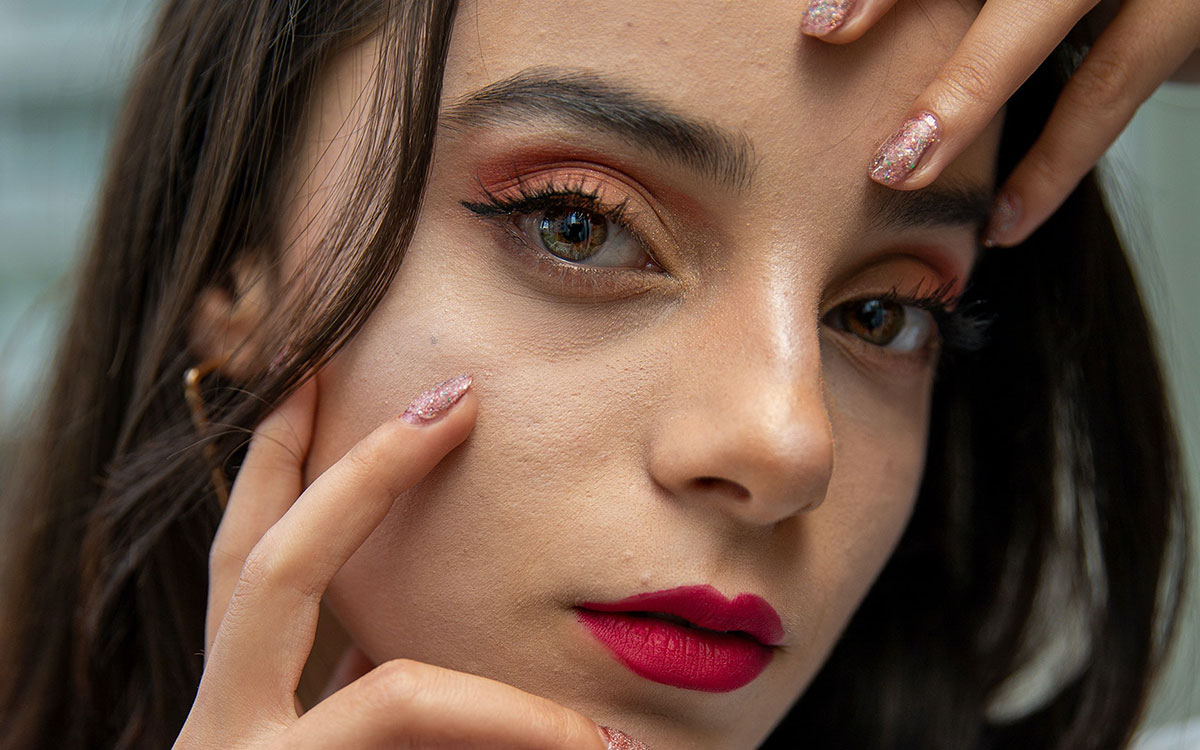- 1 Why is it Essential for Salons to Have Insurance?
- 2 What Kind of Insurance Is Necessary for Eyelash Technicians?
- 3 Public Liability Insurance
- 4 Product Liability Insurance
- 5 Employers' Liability Insurance
- 6 Other Kinds of Insurance
- 7 What is the definition of public liability insurance?
- 8 Public Liability Insurance for Salons
- 9 Product Liability Insurance
- 10 Professional Indemnity Insurance
- 11 Do I Need to Have Insurance for Public Liability?
- 12 Who Requires Insurance for Public Liability?
- 13 What Are Some of the Things Covered by Public Liability Insurance?
- 14 What Kind and What Amount of Public Liability Insurance Do I Require?
- 15 How do I obtain Insurance that covers public liability?
- 16 Employer Liability Insurance
- 17 Why does your salon need Insurance?
- 18 How exactly can Insurance be of service?
- 19 What different kinds of salon insurance are there?
- 20 What factors should you think about before choosing an insurance plan?
- 21 How much does it cost to get Insurance?
- 22 Make Time for a Convenient and Cost-Free Exam of Your Salon's Insurance
- 23 Final Thoughts
Why is it Essential for Salons to Have Insurance?
The many dangers that come with running a beauty salon and the safeguards that proprietors can put in place to protect themselves
The United Kingdom is home to a thriving beauty salon industry. It's only been three short years, but just three short years ago, hair and beauty salons were the top two business types keeping the high street buoyant. In 2019, the United Kingdom had almost 43,0002 salons listed as offering services for their client's hair, nails, face, and body.
Even though COVID-19 significantly affected the industry, all kinds of salons were back in business when this article was written. During the pandemic, some salons reported waiting lists of more than 2,000 people for services; if the number of appointments that have already been pre-booked is any indication, we can hope for a speedy recovery.3
Anyone opening or reopening a salon in the UK should consider several kinds of Insurance.
Using chemicals in treatments, having a team of people working for you, and having premises that the general public can enter put you in a position where you are vulnerable to risk. Consequently, it is essential to acquire the appropriate Insurance to safeguard yourself and your company against the possibility of legal action and any costs that may be incurred.
What Kind of Insurance Is Necessary for Eyelash Technicians?
You must ensure that you have liability insurance in your beauty kit, regardless of whether you are a generalist beautician or run your own business specializing in eyelash treatment.
Even though eyelash extensions and other treatments like LVL lashes and tints are generally considered safe, there are still potential risks in getting these kinds of beauty treatments. Accidents can occur at any time, and if one of your customers is hurt due to your actions, you may be held responsible for their financial losses. There is also the possibility that the individual who purchased the product from you will react. Because the eyes are so fragile and prone to injury, even the most seasoned professionals must exercise extreme caution when working with them.
That is why it is critical to have adequate eyelash technician insurance to protect you and your business. When making a claim, the moment you find out you are not covered is the absolute worst time to find out you are not covered, so paying close attention to the policy wording for any exclusions is essential.
We have discussed some of the essential kinds of beauty insurance for eyelash extensions you might require and the different kinds of protection each type provides.
Public Liability Insurance
Because your work as a beautician or eyelash technician requires you to interact with customers, you should include public liability insurance as an essential component of your eyelash technician insurance package.
It pays for compensation claims and legal costs if an accident occurs at work that injures a customer or a member of the public or damages the property of someone else.
Product Liability Insurance
Product liability insurance is designed to help protect you if someone alleges they were injured or their property was damaged due to a product that was sold or supplied by your company rather than something you did or failed to do. This includes situations in which your company sold the product in question.
For instance, if an eye care product caused a reaction in a customer's eye, you could be liable for the damages. You may be responsible for the development even though you did not manufacture it because you sold it.
Employers' Liability Insurance
Employers' liability insurance aims to protect both you and your employees if an employee sustains an injury or becomes ill as a direct result of the work they perform for you.
Suppose an employee or a former employee makes a compensation claim for a work-related illness or injury. In that case, employers' liability insurance will cover any compensation awarded against the business and any legal fees incurred due to the claim.
This type of liability policy is very similar to products and public liability policies; however, rather than covering compensation claims made against you by customers or the public, it covers compensation claims made by your employees.
Even if you only have one part-time employee, the law requires you to have employers' liability insurance. This is the case regardless of the size of your team working for you or the number of full-time employees you have.
Other Kinds of Insurance
As part of your eyelash technician insurance policy, there are several other covers, such as business interruption cover and tenants' improvement cover, that you should think about purchasing. Property damage is another factor that should be considered, as you do not want to be responsible for paying for repairs or replacements if your commercial property is vandalized or stolen. It is important to remember that the equipment you need to perform eye treatments is not the only thing you need to protect; you also need to protect your computer or any other electronic equipment you use to make bookings. All these things can start to add up, so it is important to remember this.
Personal accident and sickness cover should also be something you consider. This will ensure that you are covered if you cannot work by paying you a weekly amount if you are off work temporarily or a lump sum if you are off work permanently. If you are off work temporarily, you will receive the weekly amount.
What is the definition of public liability insurance?
You can protect yourself and your company from lawsuits filed by members of the general public by purchasing a public liability insurance policy, one of the most common types of general business insurance. This protection should be an essential component of your business insurance package if your company ever deals with customers or clients of the general public in any capacity.
Public Liability Insurance for Salons
This insurance protection should be in place at any company that invites customers, clients, or other guests onto their premises. You have customers, suppliers, and other members of the public coming into your salon; this Insurance protects you if someone makes a claim against you for an injury they sustained during their visit or for the damage done to their belongings.
Imagine for a moment that a delivery person carrying hair-washing products trips and falls into your salon because there is water on the floor. Because he cannot work due to the injury to his back, he files a claim to receive compensation for his lost wages. Because of your Insurance, you won't have to worry about bearing any of the financial burdens of the loss, and all of your legal expenses will be covered.
Product Liability Insurance
Even though color and skin tests are performed, there is still a possibility that one of your customers will have an adverse reaction to one of the products used in your salon or that they will be harmed by one of the products. Similarly, one of their belongings may sustain damage due to products you or your staff have used. Your business is protected against legal action with product liability insurance. In addition, it protects your salon and your belongings if they are damaged.
The hypothetical situation in which bleach gets spilled on a customer's coat and causes damage follows. She files a claim to get the cost of the highly pricey skin reimbursed to her. Your insurance policy will cover these expenses.
Professional Indemnity Insurance
Your professional indemnity insurance will compensate you for any financial losses sustained due to a claim made by a third party who alleges that you or a staff member provided poor advice, substandard medical care, or flawed design work. Because this is distinct from accidental damage, a separate insurance policy is required.
A hypothetical situation involves a client dissatisfied with the outcome of his eyebrow treatment. He claims that he is unable to go to work and that the consequences are causing him to suffer from psychological damage. Your insurance policy will pay for any legal representation, fees, and damages you incur due to his claim.
Do I Need to Have Insurance for Public Liability?
Insurance against public liability is not required by law in any state. On the other hand, many businesses believe that it is necessary to safeguard them against the possibility of high compensation claims. Some clients may demand that you have it before they work with you. The same is true for some trade bodies and professional associations.
If you own or manage a company, you should seriously consider investing in public liability insurance if any of the following apply to you:
- Clients visit your premises.
- You are responsible for working at client locations.
- You are in the public eye. (Like a builder).
- It is ultimately up to you to decide, but if you didn't have Insurance, would you be able to afford the time and money it would take to defend yourself?
Who Requires Insurance for Public Liability?
Imagine that you are a hairdresser who is visiting a client in their home and you accidentally spill dye on their carpet, or that an employee forgets to put out a "wet floor" sign after cleaning and a customer slips and breaks their leg as a result of the employee's negligence.
Legal action may be taken against your company in the above scenarios.
What Are Some of the Things Covered by Public Liability Insurance?
Public liability insurance covers your legal liability if it is determined that you or one of your employees are responsible for damaging someone else's property or causing bodily injury or death to a public member due to your business activities. That member of the public could be a customer, supplier, contractor, or simply a passerby.
This cover can include the cost of repairing or replacing possessions, healthcare provided by the NHS, legal fees associated with defending a case, and compensation claimed by the individual, which could include reimbursement for lost wages.
What Kind and What Amount of Public Liability Insurance Do I Require?
Because each company is unique, it is up to you to determine the level of protection necessary for your operations. There are several factors to consider, such as the size of your company, the level of danger associated with your line of work, and the amount of interaction you have with the general public. Before they give you work, certain clients might also require that you have a particular level of cover.
Options typically range anywhere from one million to ten million pounds. It is in your best interest to consult with an expert business insurance broker who can assist you in determining the level of risk posed by your company and make recommendations regarding an appropriate level of coverage.
How do I obtain Insurance that covers public liability?
The purchase of public liability insurance is frequently done in conjunction with the acquisition of other types of Insurance and may be incorporated into an existing business policy. For instance, if you are searching for Insurance for a salon, shop, bed, breakfast, or restaurant, public liability cover is typically included as standard in addition to other covers. One more advantage of combining business policies is that they may result in lower overall costs.
Employer Liability Insurance
If you have employees, you are required to comply with this law. It safeguards both your interests and your company's if one of your workers suffers an injury or illness due to their job. If you have this policy, you will not be responsible for legal defense or compensation claims costs.
The hitting of your front door causes it to strike one of your employees in the head, causing her to suffer a severe concussion and a scar. She submits a claim. Your Insurance will pay for any costs incurred and any compensation you receive.
Your business strategy should always include purchasing salon insurance, regardless of the types of services you provide. Because it is impossible to be completely prepared for the unanticipated, having the appropriate Insurance to protect you in the event of an accident is necessary.
Why does your salon need Insurance?
It doesn't matter if you run your salon out of your home or on commercial property; it is necessary to have salon insurance for your business. Have you taken the necessary steps to secure your Insurance? Imagine that it won't hurt your business to go without an insurance policy because you believe eyelash extensions to be a harmless form of beauty treatment. You don't want to subject your company to any additional costs by purchasing one. If that is the case, then you are completely incorrect!
You must purchase salon insurance no matter how big or small your company is to protect your customers, yourself, and your company. When starting a new business, it is critical to have salon insurance, even though this topic isn't discussed very frequently. Let's get down to why having salon insurance is necessary.
How exactly can Insurance be of service?
You might be the best lash artist in the area and use the best products, but think about what would happen if a customer's skin was extremely sensitive and reacted badly to the glue or if you accidentally poked the customer in the eye. What about an aspect of your life over which you have no influence? Your customer could fall and hurt themselves in your space; if they move their arm during the service, the glue could get on their brand-new $1500 jacket. A difficult circumstance, wouldn't you say?
Or have you considered the possibility of your property being damaged in the event of a burglary, a flood, or a fire? To cut a long story short, the most effective way to protect yourself from the unprecedented blows that have been dealt is to ensure that a reliable insurance policy covers your company and its services. This will prevent you from being placed in a stressful financial and mental position.
What different kinds of salon insurance are there?
If you work in a salon, you might get confused by the various available insurance options. The principle, however, is not overly complicated. The law mandates certain insurances, and there are others that you should consider purchasing based on your company's requirements.
Insurance that is mandated by the law:
- Workers' Compensation Insurance: It is imperative to have workers' compensation insurance if you are a sole proprietor, supervise other people's work, or have employees working for you. This Insurance will protect you financially in an accident or illness.
- Third-party personal injury insurance: If you own a motor vehicle, such as a mobile artist, you must have this Insurance. It is not optional.
- Public Liability Insurance: Insurance against public liability protects you if your actions cause death or injury to a third party due to your property or the services you have rendered.
A few types of Insurance that are beneficial to have:
- Business Insurance: If you are operating a business out of your home, you should consider purchasing business insurance to cover your general liability and commercial property insurance needs. The former safeguards your inventory and tools, while the latter protects your building from natural or man-made calamity or theft.
- Portable equipment insurance: Having portable equipment insurance is helpful if you run a mobile lash salon because it will protect your mobile property, such as a laptop and other tools of the trade, from being stolen or damaged in the event of an accident.
- Business Interruption Cover is a type of Insurance that can assist with covering any loss of income due to an event covered by the policy, such as an illness, pandemic, theft, or natural disaster.
- Professional Indemnity Insurance: Professional Indemnity Insurance protects you if an accident occurs due to any professional recommendation or advice you or any employee in your salon rendered to a client. This Insurance also protects any employee in your salon who rendered such recommendations or advice.
What factors should you think about before choosing an insurance plan?
Asking yourself what your company needs to be protected from is the first step in determining the type of Insurance that will best serve your needs. You should take into consideration, in addition to the required business insurance, whether the insurance policies cover all aspects of your company's operations and whether or not your salon is vulnerable to the influence of other external factors. You should also compare the total cost of your company's inventory to the amount your insurance policy will pay if you claim it.
How much does it cost to get Insurance?
It is essential to fully grasp your financial situation before delving into beauty parlor insurance. Insurance premiums will go up proportionately to the square footage of your salon. These are some of the contributing factors:
- Services: The higher the total number of services you offer, the more expensive your Insurance will be. If eyelash extensions are the only service you provide, you might be able to undercut the prices of competitors who combine their lash studio with a spa or hair salon.
- The number of employees you have: The more people you have working for you, the higher your workers' compensation insurance cost will be. The increased likelihood of accidents causes an increase in the premiums paid for the property and general liability insurance.
- Salons that have higher turnover rates are required to pay higher premiums.
- Deductible: When a salon assumes a greater portion of its financial obligations, the premium amount that must be paid decreases. This is because the cost of deductibles rises.
- Location of the business: Your salon's insurance premiums will be more expensive if it is located in a neighborhood with a high rate of violent crime, is prone to flooding, or has a record of frequent fires breaking out.
When considering all of these factors, monthly salon insurance costs can range anywhere from $50 to $1,000.
Make Time for a Convenient and Cost-Free Exam of Your Salon's Insurance
January is traditionally a slow month for hair and beauty salons compared to December, which generates an average of over 10% of a salon's annual income.1 As a result, this natural lull at the start of the year is an excellent time for salon owners to catch up on administration, plan staff training, and review their business strategy for the year ahead.
The rapid spread of the Omicron variant of COVID-19 likely is to blame for the unprecedented number of canceled salon appointments reported at the beginning of January 2022. According to the Office of National Statistics, in the first week of the year, 16% of businesses saw "an increase in cancellations from customers over the last month." However, this percentage rises to 50% for providers of services such as hair and beauty salons, two some of which have seen up to seven cancellations in a single day.3 Some of these businesses have also seen up to seven cancellations in a single day.
This situation highlights the ongoing uncertain nature of an industry that has undoubtedly been through a difficult couple of years. While some cancellations may lead to rebookings, most cancellations will likely result in no business. After completely closing their doors, hair and beauty salons reopened with stricter distancing rules to follow and longer waiting lists for customers to get through, only to be met with additional closures, revised guidelines, and additional appointment cancellations.
As a part of their overall administrative catch-up, salon owners should take advantage of the slower pace of business at this time of year to schedule a health check for their insurance policies. It is essential to keep abreast of any changes in the insurance industry as it reacts to the pandemic. Additionally, it is essential to ensure that the salon is protected from day-to-day risks by ensuring that all of the appropriate insurance policies are in place.
By working with a well-versed broker in your sector, you can ensure that your company will receive the appropriate protection. They will also keep you updated with information on the latest general insurance trends and developments in the industry. Using a comparison website may invariably result in the most affordable deals; however, these are frequently a false economy because they offer a one-size-fits-all approach that does not cover every conceivable contingency pertinent to your company. When they have a policy that isn't adequate for their needs, businesses risk being left over or underinsured.
Final Thoughts
Considering the amount of time and energy you devote each and every day to expanding your company, purchasing salon insurance is the most effective thing you can do to safeguard its future. Always err on the side of caution instead of regret. Even though you can't see it right now, the astute investment you made will get you through a difficult time and give you peace of mind as you go about the regular operations of your business.







